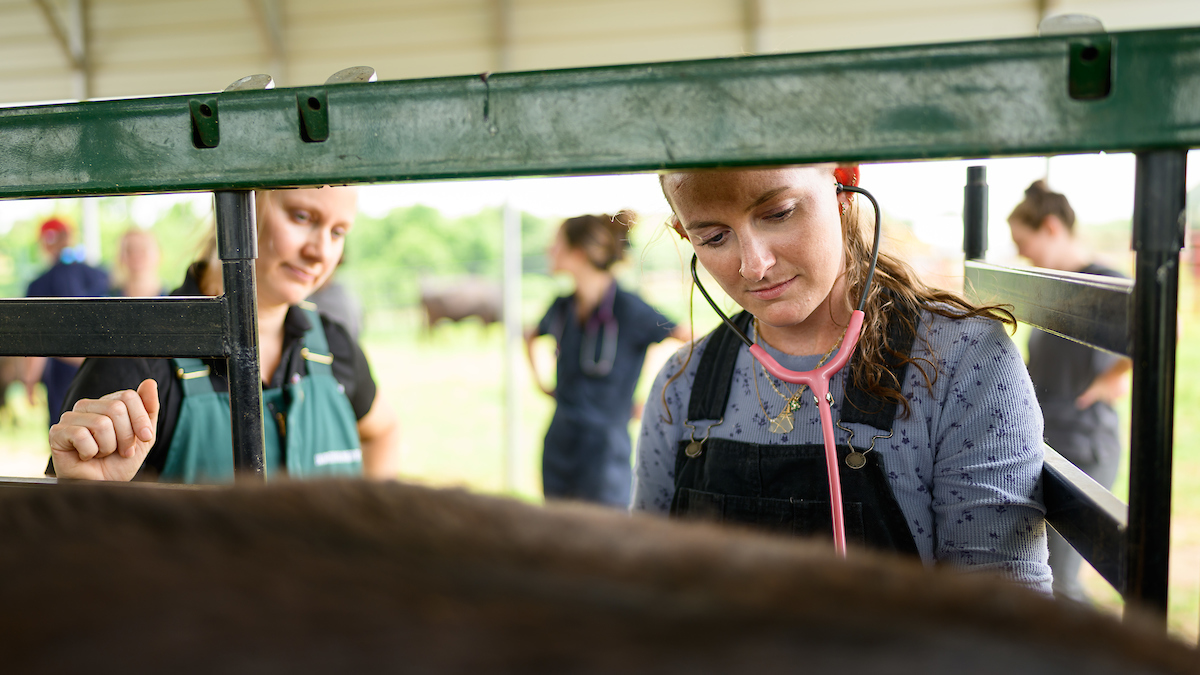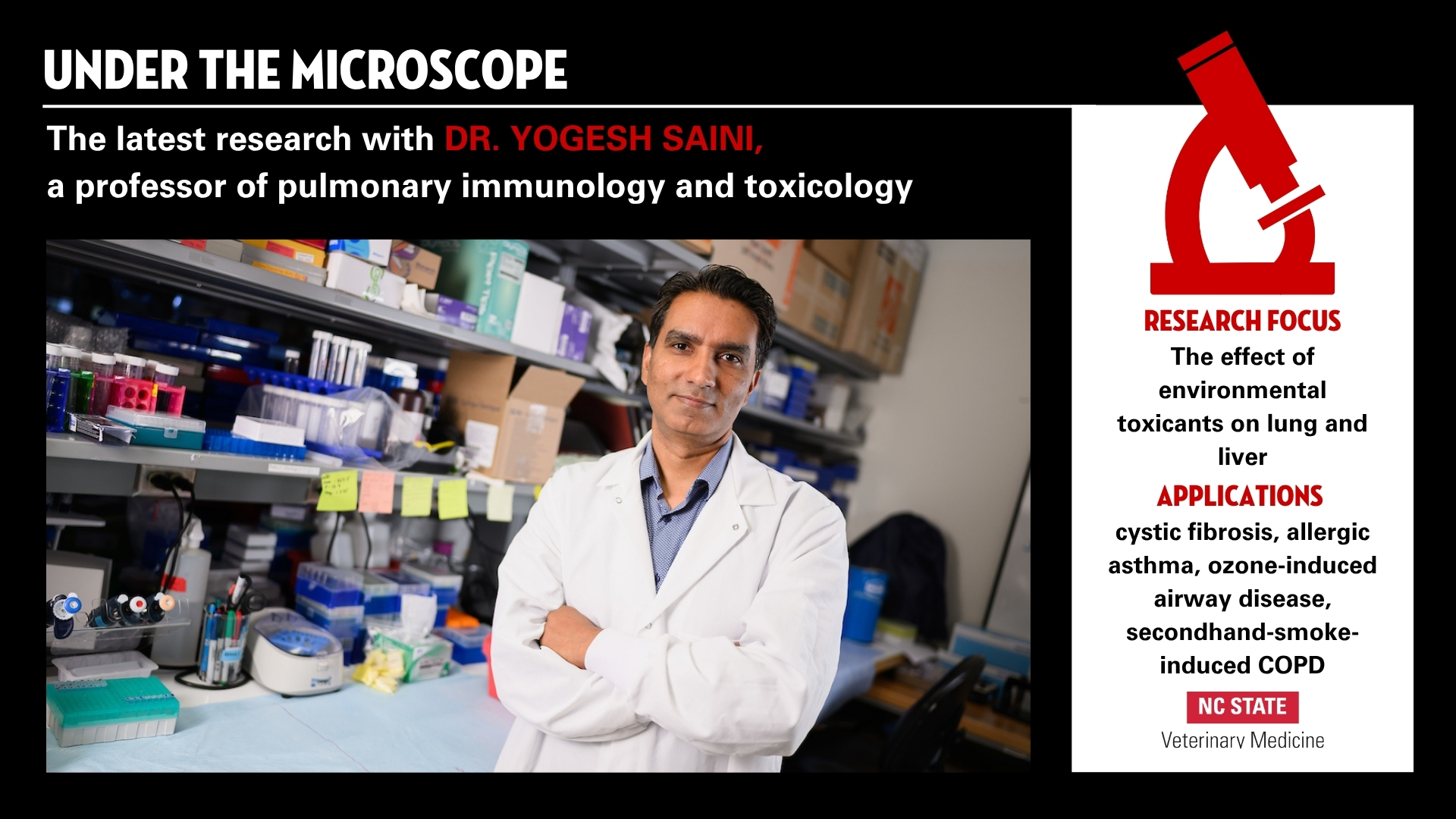Sheats Appointed to New Role: Associate Dean and Director of Professional Education and Admissions
Dr. Katie Sheats received her bachelor's, DVM and Ph.D. at NC State and became part of the faculty in 2014. The chance to help advance educational excellence at "a place I consider home and so transformative for me is really exciting,” she says.
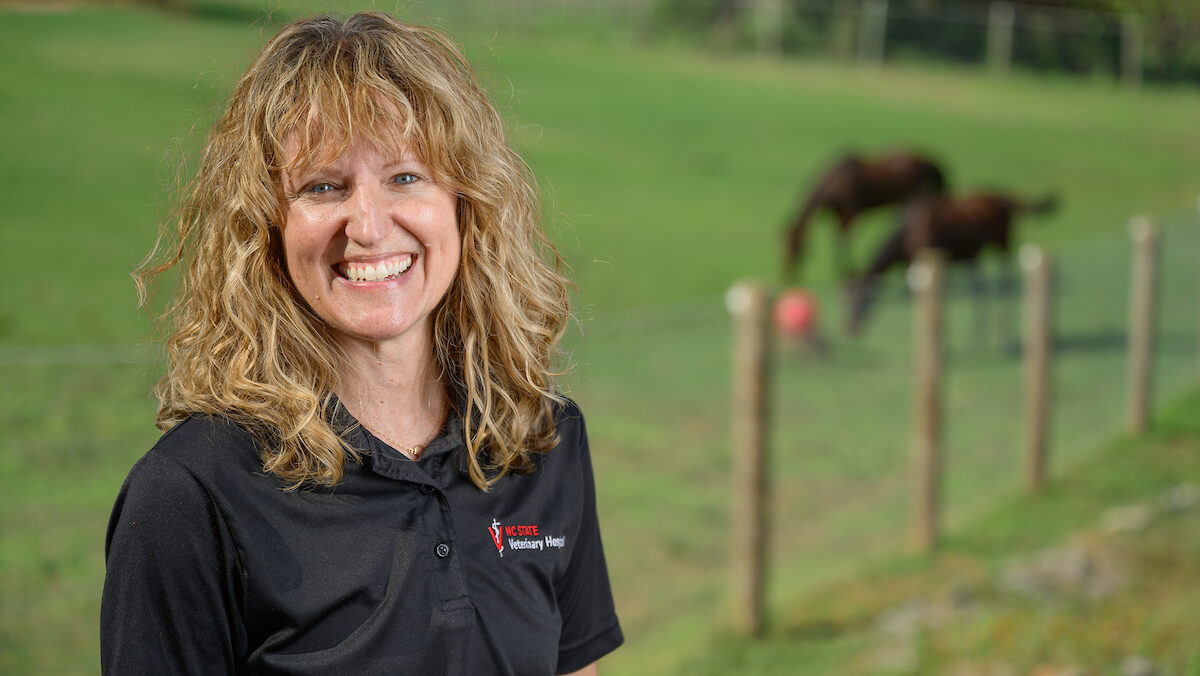
Dr. Katie Sheats, associate professor of equine primary care, has been chosen as the new associate dean and director of professional education and admissions at the NC State College of Veterinary Medicine.
Sheats, who received her DVM at NC State in 2005 and became part of the faculty in 2014, was instrumental in the development of the new veterinary student curriculum that launched this fall after a five-year collaboration among faculty, staff and clinicians.
“I am so proud and delighted to appoint Dr. Sheats to this role,” says Dr. Kate Meurs, the college’s Randall B. Terry Jr. dean. “She is a recognized national leader in veterinary education and has been so integral in our college’s curriculum development and many other aspects of our veterinary education program. I know she will lead us to even greater heights on a national and international level through our educational program.”
Sheats, a native North Carolinian, also received her bachelor’s, equine internal medicine residency training and Ph.D. in comparative biomedical sciences with a focus in cell biology at NC State.
“I am extremely excited and grateful for this opportunity to serve NC State in this role,” Sheats says. “Having been a DVM student myself at NC State, I am delighted to have the chance to guide admissions and curriculum for this school and for students who are in the same position I was once in. My life has been changed by all that I have learned from NC State over the years. I feel honored and privileged to lead the educational mission here at the CVM, which I consider home.”
Sheats has had extensive experience maximizing the student experience at the NC State College of Veterinary Medicine. As coordinator of the Equine Primary Care Program, she works with equine private practice veterinarians to establish best practices for training equine-focused students. This fall, she was instrumental in launching the new Equine Scholars Program, which recruits undergraduate students with a demonstrated interest in horse health from partner universities to join NC State’s DVM program to strengthen the pipeline of future equine veterinarians.
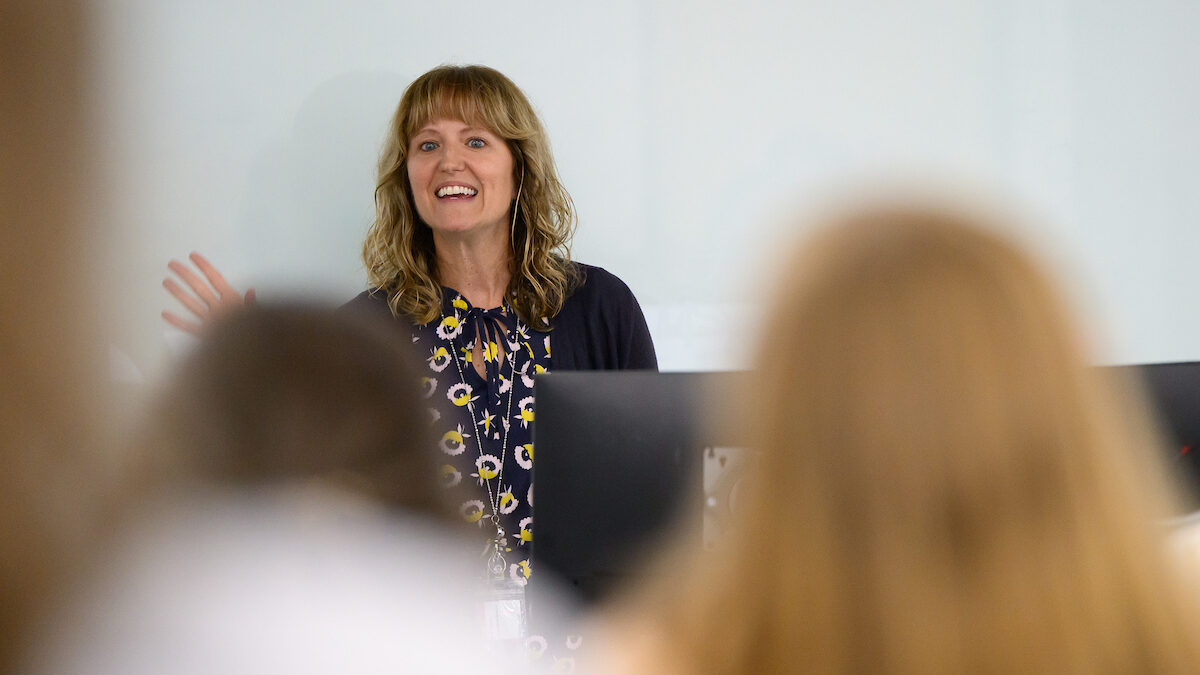
Sheats began her faculty career as an assistant research professor, studying the innate immune system and the role neutrophils play in host defense and host injury. She also has conducted educational studies on the best ways to communicate information to students and to track their competency.
On the national level, Sheats is a volunteer accreditation site visitor for the AVMA Council on Education, assessing veterinary colleges undergoing accreditation to ensure they are meeting educational standards. She is also a member of the Board of Directors for the Academy of Veterinary Educators.
In her new role, Sheats says, she’s eager to work with stakeholders in the community and future employers to ensure that the NC State College of Veterinary Medicine is exposing students to a variety of possible veterinary careers and preparing them for success in those careers.
“I’m also looking forward to working with our admissions team to continue recruiting and admitting students who are passionate about veterinary medicine and eager to fill the many important roles veterinarians have in society,” she says. “I’m also very excited to have much more of my time dedicated to being focused on our educational programs and working with the teams that support those programs.”
Dr. Laura Nelson, the previous associate dean and director of academic affairs, was named as the associate vice provost for academic personnel and policy for NC State University in July.
One of the challenges Sheats sees ahead is ensuring that the DVM program maintains its historical excellence while staying flexible enough to meet the demands of an evolving and modernizing society.
“The best example of this is the advent of AI technologies and how they impact health care in general and then how our educational systems will adapt to address changes, in culture, in society and in technology, to continually stay current and prepare our students in the best way possible,” she says.
Sheats credits her mother, a seventh-grade English and social studies teacher for 30 years, for being an example of what it means to be a dedicated and passionate educator.
“The more training I completed in pedagogy and the science of teaching and learning, the more interested I was in learning more, as a scientist and someone who’s interested in biological processes,” Sheats says. “There’s a real science and evidence behind learning, and once we know that as educators, we can leverage that to make learning for our students even better.”
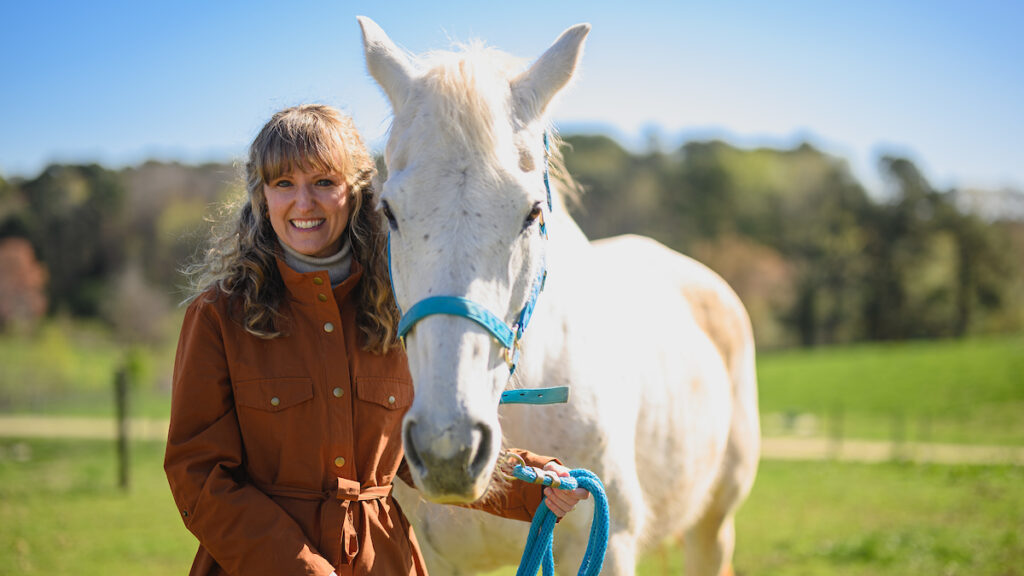
- Categories:

